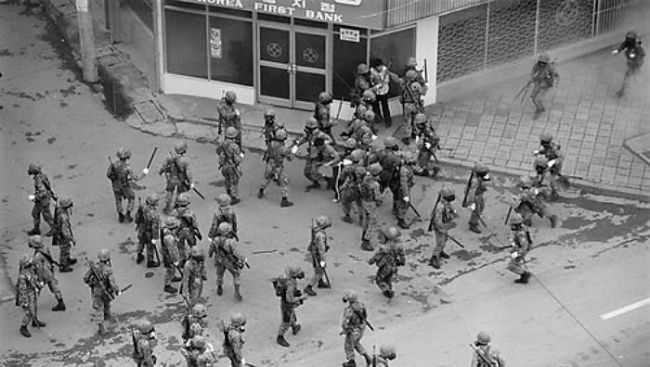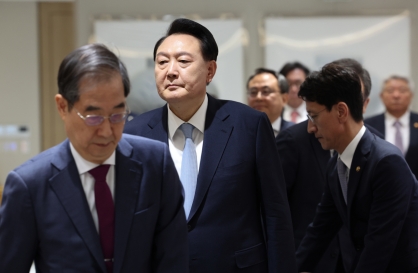Declassified US document reveals US saw Choi Kyu-ha as ‘helpless president’
By Ahn Sung-miPublished : June 2, 2021 - 16:59

A host of newly declassified US documents was released to the South Korean government on Wednesday, revealing Washington’s assessment of Choi Kyu-ha as a “helpless president” against military general Chun Doo-hwan. Chun took power after a military coup in 1979, leading to the nationwide democracy movement the following year.
The State Department released 14 documents related to the May 18 Gwangju Democratic Uprising, including the full text report sent from the US Embassy in Korea to Washington on May 17, the day nationwide martial law was declared by Chun’s military junta.
In a cable titled “Crackdown in Seoul,” the US Ambassador to Korea William Gleysteen described Chun as “presumably playing a central but not necessarily decisive role,” assessing that it was not only Chun, but a group of military leaders, that took the grip of the country. Gleysteen accused the military of ignoring the legitimate government authority to institute a tough crackdown on student protesters.
The cable described “an all but formal military takeover may be in process,” adding “a helpless president and cabinet have sanctified the decision,” apparently referring to then-acting President Choi who failed to stop Chun from declaring martial law and stage a military crackdown on students.
On December 12, 1979, Chun seized control of the country through a military coup, just two months after the assassination of President Park Chung-hee on Oct. 26, leading to then-Prime Minister Choi becoming the acting president. The military control led to democratic uprising involving students across the country the following year, and on May 18, hundreds of citizens were killed in a deadly military crackdown on the protesters in the city of Gwangju.
In addition to Choi’s lack of power, then-Defense Minister Choo Young-bok also indicated that he had little control over the military, a document dated Jan. 10, 1980 showed.
“I have no influence over the Army. You must help me,” Choo said during talks with Lester Wolff, then chairman of the US House Foreign Affairs Subcommittee on Asia and Pacific affairs.
Choo was responding to Wolff’s call that he would try to help him strengthen the chain of command and counter divisive tendencies in the army, apparently referring to the military coup staged a month ago.
The release comes as the South Korean Foreign Ministry has asked the US for declassification of 80 documents related to the uprising, prompted by calls from the public and legislators to uncover the truth behind what had really happened, nearly four decades after the bloodshed.
The US handed over 43 documents last year, with 23 that are left sealed, indicating they could entail politically sensitive material.
The key question on who ordered the military to open fire at unarmed Gwangju residents, and the chain of command at the time, remains unanswered as they were not included in the latest documents.
By Ahn Sung-mi (sahn@heraldcorp.com)








![[KH Explains] How should Korea adjust its trade defenses against Chinese EVs?](http://res.heraldm.com/phpwas/restmb_idxmake.php?idx=644&simg=/content/image/2024/04/15/20240415050562_0.jpg&u=20240415144419)











![[Today’s K-pop] Stray Kids to return soon: report](http://res.heraldm.com/phpwas/restmb_idxmake.php?idx=642&simg=/content/image/2024/04/16/20240416050713_0.jpg&u=)